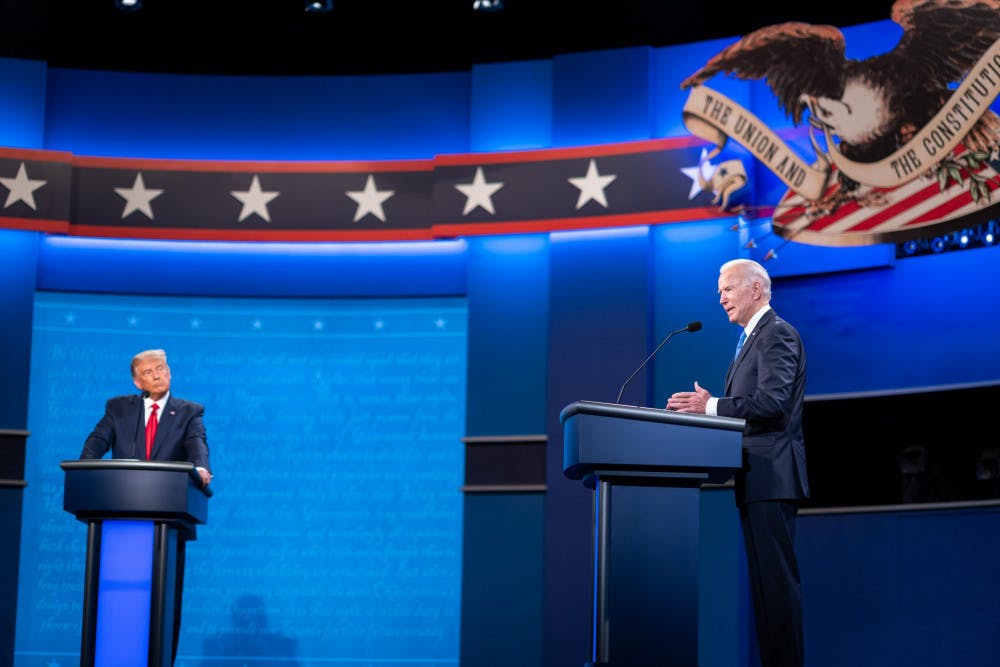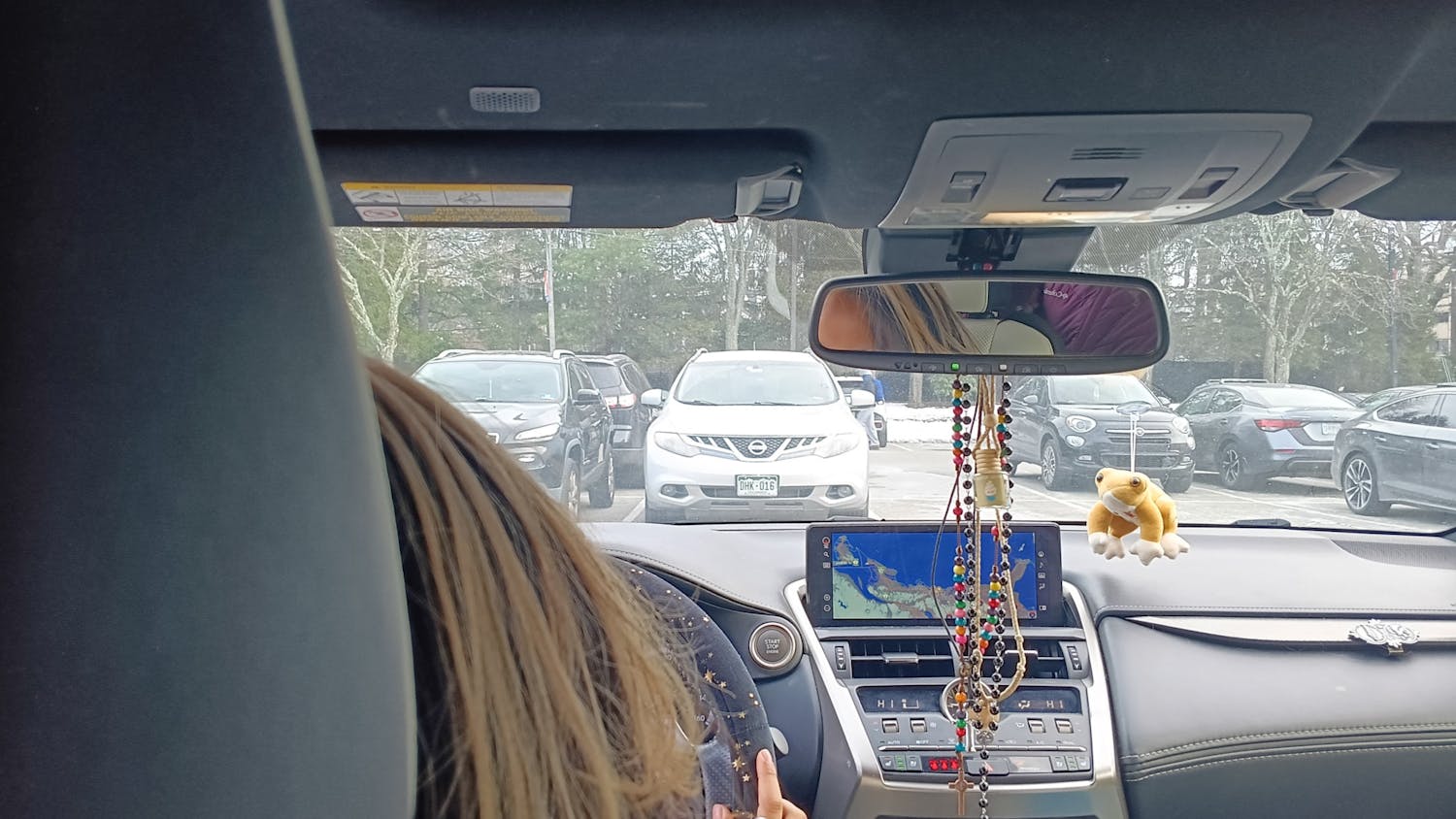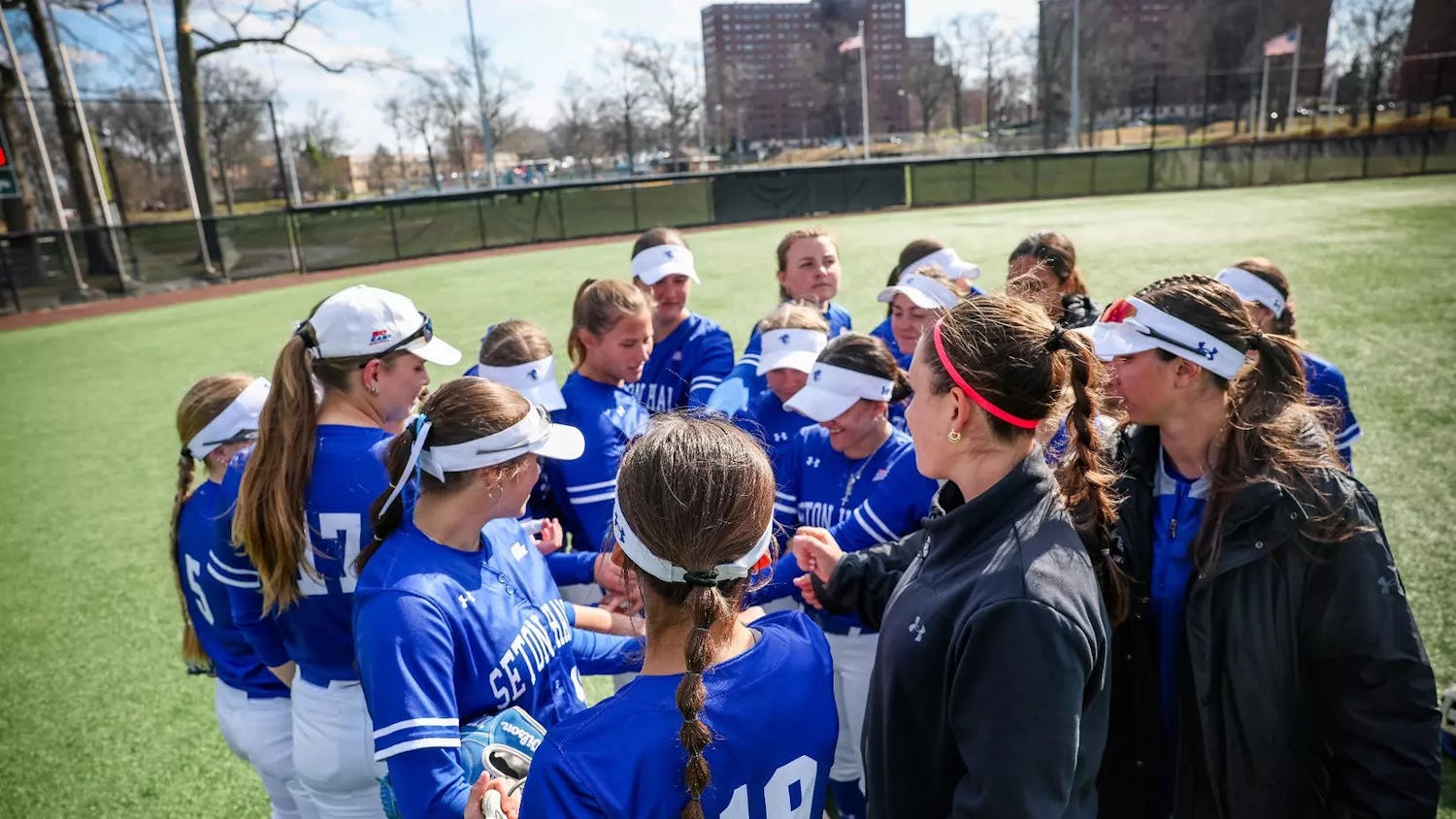The final presidential debate between former Vice President Joe Biden and President Donald Trump took place on Oct. 23.
The debate was moderated by NBC News White House Correspondent Kristen Welker. Belmont University in Nashville, Tennessee, hosted the debate.
This was the second and final presidential debate between the two candidates and widely considered by observers to be more orderly than the first debate—at least in part due to the candidates' microphones being muted during each other’s two-minute opening statements at the start of each new topic.
The Commission on Presidential Debates (CPD) announced the decision to mute candidates’ microphones on Oct. 19, saying that the decision was made in response to the frequent interruptions during the first presidential debate.
“The commission has considered the opinion of many who expressed concern that the debate fell short of expectations, depriving voters of the opportunity to be informed of the candidates’ positions on the issues,” the CPD said. “They advocated a variety of changes that could be introduced for subsequent debates, including the turning off of microphones to avoid interruptions.”
The six topics Welker chose for the debate were COVID-19, American families, race in America, climate change, national security and leadership.
Camil Koreichi, a senior finance major, said he attended the College of Communication and the Arts’ presidential debate watch party to view the debate. He said he thought this debate went better than the first.
“The level of this debate was miles ahead from the first one and it is due to two main factors: the moderator, who did a great job at refocusing the debate on the topics that mattered, and Trump's behavior was more presidential as he was more calm and respectful towards both the moderator and Biden,” Koreichi said. “Overall, depending on the topic, both candidates had moments in which they were comfortable as well as moments of struggle.”
Julia Lomonte, a sophomore creative writing major, said she found the debate to be very frustrating to watch.
“The debate made me just as irritated as the first one,” Lomonte said. “I didn’t watch the whole thing, I had to walk away after Trump started talking about the children at the border because it honestly made me too upset to think about. It’s also super stressful to watch people talk over each other which happens at every debate.”
Koreichi also talked about what he found frustrating about the debate.
“One sad thing about the debate was how it is impossible for the viewers to verify anything both candidates are saying,” Koreichi said. “They both seem to bring up ‘facts’, but whenever those are brought up by one side, the other side just says the opposite. People then just take for truth whatever version goes in accordance with their way of thinking.”
The debate comes after many voters have already cast their ballot through early voting and mail-in voting. Melanie Liriano, a sophomore speech pathology major, brought up this point while talking about her overall opinion on the debate.
“Clearly that debate was pointless because millions of Americans have already voted,” Liriano said.
Election Day is Nov. 3. New Jersey mail-in ballots must be postmarked by Election Day and received by Nov. 10. Out-of-state voters can use this link to find out their state’s mail-in ballot rules.
Eve Krupcheck can be reached at genevieve.krupcheck@student.shu.edu





